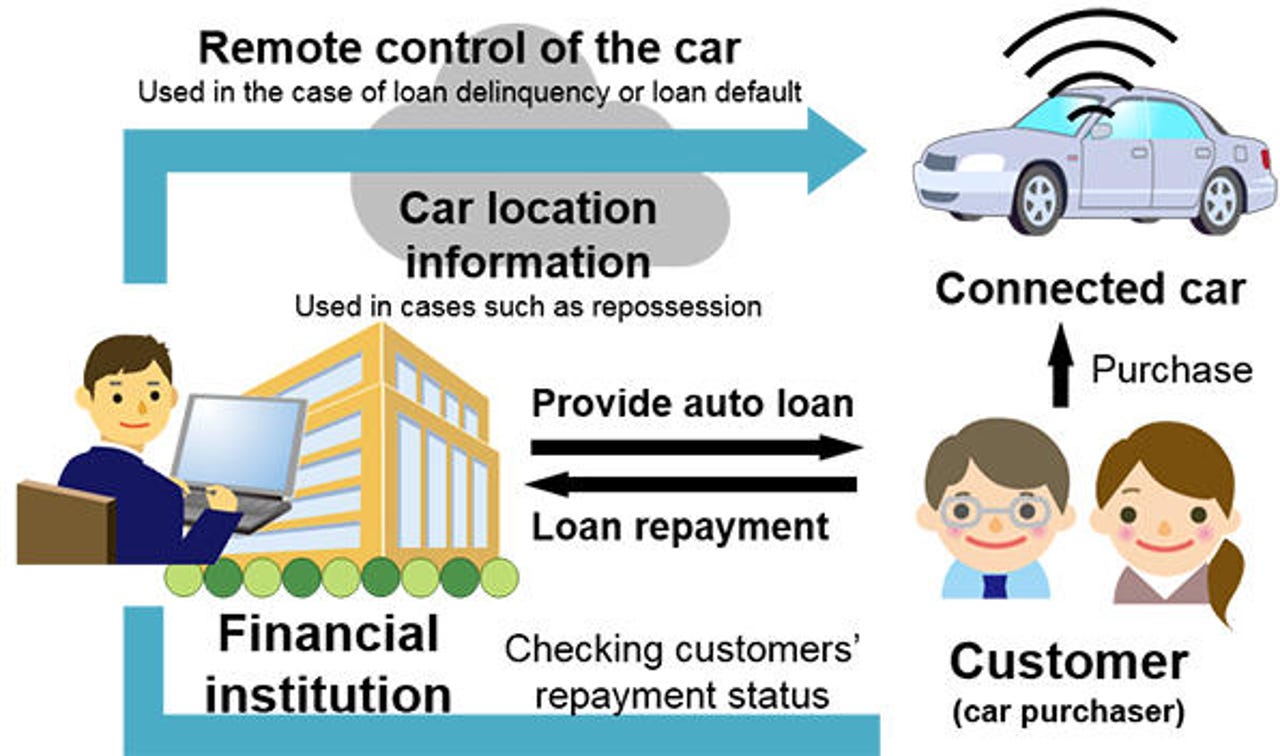Japanese firms to trial location-tracking car loans in Indonesia


NTT DoCoMo and Mizuho Bank will conduct a trial in Indonesia until the end of November that will see a device be attached to a car -- to track its location -- as part of what the Japanese pair labels an advanced financial service in the form of a "network-connected auto loan".
The device will track the location of the vehicle and be capable of controlling the engine. Both of these capabilities will be used in the case of loan delinquencies or defaults.
Both companies will use Indonesian subsidiaries, with NTT using Mobile Innovation Indonesia and Mizuho relying on Mizuho Balimor Finance. The trial will be restricted to 200 customers in Jakarta.
"The trial service is one of the latest examples of DoCoMo's efforts to collaborate with partners to interconnect cars and data for diverse value-added services that enrich the experience of automotive transportation," NTT hand-wavingly claimed.
"Mizuho is leveraging its expansive financial expertise to support economic growth in Asia by expanding its retail financial services outside Japan and creatively using data acquired through new technology."
The pair said that once the proof of concept is completed, they would look to expand its use within Indonesia and throughout South-East Asia, and that the trial would help create "additional financial services based on the combination of financial and vehicle movement data".
Using Internet of Things (IoT) devices within vehicles is far from being a new concept; in May, Vodafone described how its IoT solutions have helped recover 966 stolen vehicles using tracking and sensing technology.
"This was a connection that's doing integrated tracking connectivity in the car, which is to collect information; connected to a central hub, which is the connection; and then storing that data and running AI across the top of it; and then that is supported from the action point of view from secure operating centres that have the ability to recognise the change in behaviour effectively of the car, interrogate that behaviour, and then make the decision on whether they dispatch [police]," Vodafone Global Enterprise head of IoT APAC Justin Nelson said at the time.
"So we've recovered 1,000 cars doing this ... it completely changes not only your recovery, but your ability to change your insurance conversations as well."
Meanwhile, in South Korea, SK Telecom and its affiliate SK Networks have used the parent telco's LTE Cat M1 IoT network to allow for vehicle status checks in real time.
SK Networks said in October that it would use the network to check the engine status, usage, and malfunction codes of cars that it lent out.
SK Telecom had previously launched an IoT tag pitched at tracking children and pets.
Also see:
A guide to the Industrial Internet of Things (IIoT)
What is the IIoT? Everything you need to know about the Industrial Internet of Things
Your guide to the top IIoT companies
How IoT will drive the fourth industrial revolution
How machine learning and the Internet of Things could transform your business
Top 5 jobs that will take advantage of the IIoT revolution
IIoT security: Why it matters, why it needs to be much better
Nanosatellite hopefuls eyeing IoT opportunities
CIO Jury: Why 58 percent of tech leaders are unprepared to handle IIoT data